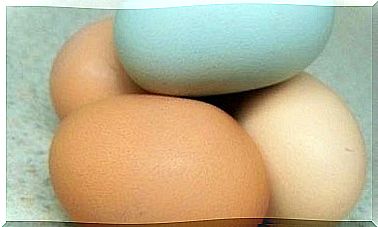Is The Zone Diet Really Recommended And Balanced?
Despite its many adherents, the zone diet is a very restrictive diet that does not have enough scientific basis to ensure that it improves the condition of those who follow it.

If you have already made the decision to change your eating style, surely you have come across an infinite amount of information about what diet to do or what foods you can and cannot consume. Among the available options, the very controversial diet of the zone is presented.
As you might expect, it has defenders and detractors. But this food plan has become the choice of many public figures of international entertainment.
40–30–30 is the formula that has made this nutritional concept a topic of debate. We explain it to you in the following way: each meal you eat should be made up of 40% carbohydrates, 30% protein and 30% fat.
Is it nutritionally balanced?

When we talk about carbohydrates, proteins and fats, we refer to those macronutrients that you should consume per day. Traditionally, specialists pointed out that the balance was achieved with a specific distribution: 15 and 20% protein, 20-25% fat and 50-60% carbohydrates.
However, Dr. Barry Sears refuted this idea. This American has studies in biochemistry and several investigations in lipids. He concluded that this distribution was not adequate because it generated various pathologies.
That said, he proposed 40–30–30 as the ideal equation for the distribution of macronutrients in the diet. At this point, the individual will be able to conquer the “zone”, which is the maximum state of acceleration of metabolism, where insulin is at its regular levels and in balance.
Importance of insulin
The main objective of the zone diet is to break down nutrients, since excess carbohydrates can raise the level of insulin in the blood. With this diagnosis, we could suffer from multiple diseases.
Hyperinsulinemia also refers to low glucose levels. These problems are reflected in symptoms such as :
- Overweight
- Tiredness
- Cardiovascular and respiratory difficulties
- Seizures
- Brain damage
- Arterial hypertension
Some benefits of the zone diet

The norm indicates that 40–30–30 is a constant that should be maintained at all meals of the day. In addition, you should not allow more than five hours to pass between meals and it is essential that all the carbohydrates you consume are low glycemic. That is, zero refined sugar.
In this way, we will be limiting the consumption of carbohydrates and benefiting the reduction of insulin. This will generate that:
- The body uses fat as its main source of energy.
- Insulin will be able to transport nutrients more efficiently into cells.
- You feel more satiated.
- Lose weight.
- Have more energy availability to face your routine of daily activities.
Basic Tips for Success with the Zone Diet
There are some pillars that we must take into account if we want the zone diet to be effective:
- Do not stop eating breakfast.
- Do not let an hour pass after getting up for breakfast.
- Make a meal every five hours, even when you’re not hungry.
- Eat monounsaturated fats that contain Omega 3, such as olive oil, avocados, nuts, etc.
- Eat carbohydrates with low sugar levels, such as grains, vegetables, and fruits.
- Do not forget the proteins in any meal, because the balance of blood sugar levels depends on this.
Adverse reactions

Every project has detractors, and the diet of the area does not escape this situation. There are many loose nails that this proposal has left. And, with them, many specialists who have been in charge of dismantling the “wonders” of Dr. Sears.
The Spanish Aitor Sánchez García, author of My Limp Diet , described this diet as a great fallacy, since for him its creator only seeks economic benefits.
- The also nutritionist, dietician and food technologist assures that behind this project there is a large industry of food products necessary to comply with the 40–30–30 formula.
- For him, this scheme is impossible to comply with under the normal parameters of healthy eating.
- In addition, it asserts that this diet is hyperprotein, hypocaloric and that it does not have enough scientific bases to ensure that it improves physical and mental state.
More loose nails
This diet puts the individual against the hydrates derived from flours. Perhaps the distribution of macronutrients is not unreasonable, but to lose weight and achieve a better lifestyle you do not have to stop eating any food.
It may be enough to include what we like in reasonable amounts. The latter, provided that the individual does not have a medical problem with a specific food. With the zone diet you must have more than willingness to improve your health, since it sets very demanding limits.








